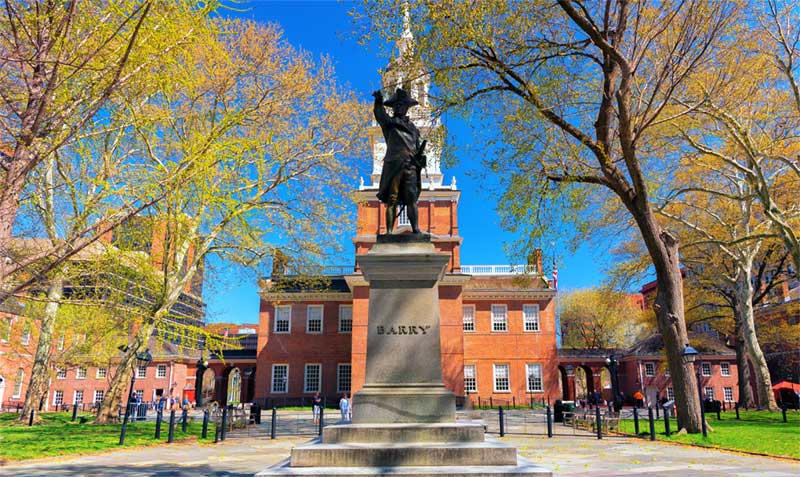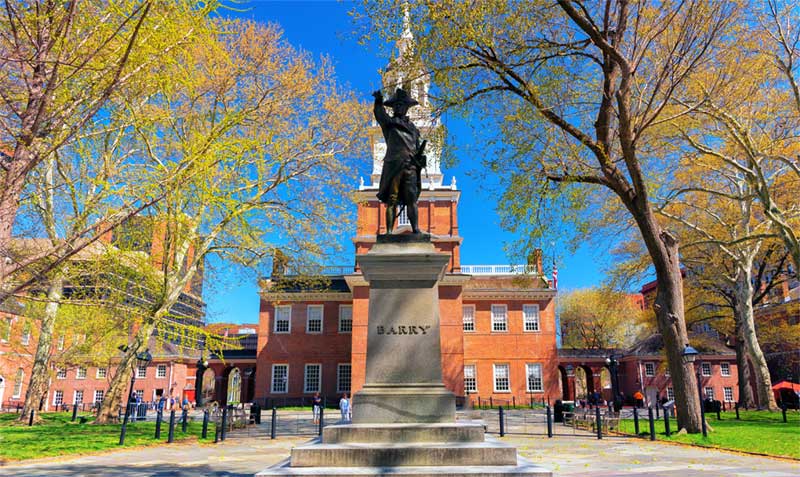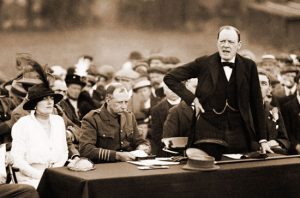
Past Events
Black Tie Churchill Centre Academic Dinner

September 1, 2016
Thursday, September 1, 2016 from 7:00 PM to 9:30 PM
Location: Philadelphia, PA | The Union League Club You are warmly invited to participate in the annual Churchill Centre academic dinner in Philadelphia. This year we are honored to have Michael Barone, a resident fellow at the American Enterprise Institute, as our guest of honor. He will speak after dinner on “Churchill and Nationalism.”
You are warmly invited to participate in the annual Churchill Centre academic dinner in Philadelphia. This year we are honored to have Michael Barone, a resident fellow at the American Enterprise Institute, as our guest of honor. He will speak after dinner on “Churchill and Nationalism.”
From 1989 to 1996, and again from 1998 to 2009, Mr. Barone was a senior writer for U.S. News and World Report. From 1996 to 1998, he was senior staff editor at Readers’ Digest. Before joining U.S. News and World Report, Mr. Barone was a member of the editorial page staff of the Washington Post. He was previously vice president of Peter D. Hart Research Associates.
Follow this link to reserve your ticket.
Mr. Barone is principal co-author of The Almanac of American Politics and author of Our Country: The Shaping of America from Roosevelt to Reagan. Over the years he has written for many major market publications, including The Economist, The New York Times, The Detroit Press, American Enterprise, and The Daily Telegraph of London.

2024 International Churchill Conference
The evening will begin with a reception, followed by dinner and Michael Barone’s remarks after dinner. Dinner dress is black tie or dark suit. The reception begins at 7.00 p.m. and dinner will be served at 8.00 p.m. Please note on your registration form whether you would like the vegetarian option.
7.00 p.m.: Cash Bar Reception
8.00 p.m.: Dinner
For more information, call The Churchill Centre toll free at +1 (844) 972-1874 or email [email protected]
The Churchill Centre organizes this dinner annually in conjunction with the meeting of the APSA. The Centre is an international non-profit organization based in Chicago, dedicated to preserving the thoughts, words, and deeds of Sir Winston S. Churchill. It publishes the definitive journal of Winston Churchill, Finest Hour, and an online monthly newsletter,Chartwell Bulletin. The Centre hosts the annual International Churchill Conference and conducts educational programs for high school and college students and a wide variety of other events and activities.
You are also invited to attend The Churchill Centre Panel at the Annual Meeting of the American Political Science Association
Winston S. Churchill on the Big Questions of Political Science
Saturday, September 3, 12.00 noon to 1.30 p.m.
Loews Philadelphia Hotel, 1200 Market Street, Philadelphia, PA 19107
Commonwealth Hall (2nd floor), Room B
Winston S. Churchill, who held almost all of Britain’s highest offices during a political career that spanned seven centuries, was also a thoughtful observer of politics, writing dozens of books and winning the Nobel Prize in Literature for his historical and biographical works. Our panel, in keeping with the 2016 APSA conference theme, aims to explore what Churchill identified as the big questions of political science, how he considered them in his writings, and how he addressed them in his statesmanship.
Chair: Michael Barone, Resident Fellow
American Enterprise Institute (Washington, D.C.)
Papers:
(1) “The Paragon of the Regime: Churchill and Horatio Nelson”
Guy Fred Burnett, Assistant Professor of Government and Foreign Affairs
Hampden-Sydney College (Hampden Sydney, Virginia)
One of the most important political tests for any national leader, especially during times of instability and conflict, is in reestablishing the identity and virtues of the regime. Throughout the course of his life, Winston S. Churchill personally admired and emphatically used the symbolism of Lord Admiral Horatio Nelson as a paragon of the British citizen. This paper considers several important questions regarding the use of Nelson by Churchill: (1) Why was Nelson a paragon of the British citizen for Churchill? (2) How does the use of Nelson inform us about Churchill’s understanding of the virtues of Great Britain? (3) How did the use of Nelson iconography help Churchill communicate his understanding to the public?
(2) “Churchill’s Critique of Kitchener in The River War”
James W. Muller, Professor of Political Science
University of Alaska, Anchorage (Anchorage, Alaska)
In the most impressive of his early books, The River War (1899), Winston S. Churchill assesses the character, motives, strategy, and policy of General Herbert Kitchener, Sirdar of the Anglo-Egyptian Army. This critique allows Churchill to consider many big questions of political science in the context of Britain’s reconquest of the Sudan, including race, religion, war, and empire. This paper will consider the tension between military and political aims, the effects of technology, and the importance of character for a leader in exploring Churchill’s view of the limitations of Kitchener’s appreciation of these questions.
(3) “Churchill and Chamberlain: Appeasement Revisited”
John H. Maurer, Alfred Thayer Mahan Professor of Sea Power and Grand Strategy
U. S. Naval War College (Newport, Rhode Island)
One of the big questions of our time is how great powers manage change in the international system. In particular, how do states that want to preserve the existing international order deal with the rise of powerful challengers, seeking to transform it? This problem appeared in stark form during the 1930s, as Great Britain confronted the peril posed by Hitler’s Germany. Britain’s policy of appeasement, championed by Neville Chamberlain, was an attempt to find a way to moderate Germany’s international behavior and avoid another world war. Winston Churchill emerged as the foremost critic of appeasement. He predicted the failure of appeasement. Their clash over foreign policy and strategy provides a remarkable case study on statesmen grappling with a big question about how best to preserve the peace when confronted by a dangerous international challenger. My essay examines the controversy generated by Britain’s pursuit of appeasement by looking at the views of Chamberlain and Churchill on grand strategy. While both leaders held realist views about the workings of the international system, they nonetheless came to startlingly different conclusions about foreign policy. Chamberlain and Churchill marshaled powerful arguments in support of their policy stance. My goal is to examine their arguments in an attempt to understand how each believed that his policy alternative offered a better prospect for success in dealing with the German menace. The controversy over appeasement remains a big question in foreign policy debates. Echoes of this controversy have been heard since the 1930s, during the Cold War debates on strategy and, in our own time, in policy disagreements within the United States about the rise of China and Iran as strategic challengers. An exploration of Churchill’s critique of appeasement can provide insight into today’s strategic dilemmas and foreign policy choices.
Discussant: Theodore R. Bromund
Senior Research Fellow in Anglo-American Relations
Heritage Foundation (Washington, D.C.)
Subscribe
WANT MORE?
Get the Churchill Bulletin delivered to your inbox once a month.



